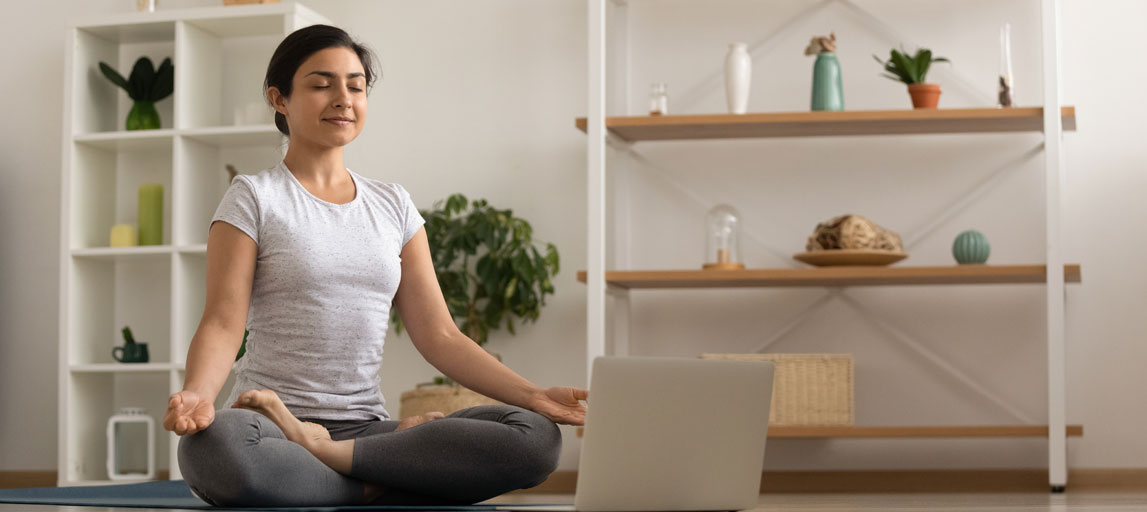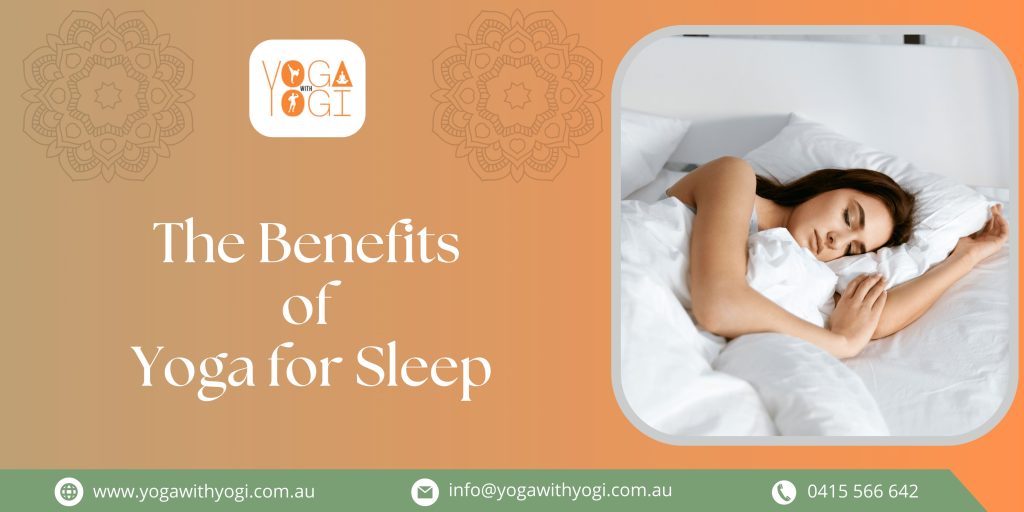Yoga offers numerous benefits beyond physical fitness, and its impact on sleep is remarkable. The experts of yoga in castle hill can help you learn the right poses that wouldn’t just reduce stress, promote physical relaxation, regulate breathing patterns, cultivate mindfulness, balance hormones – but also help you in getting effective sleep patterns.
In today’s fast-paced world, getting a good night’s sleep has become increasingly challenging for many people. The online yoga cherrybrook can help you understand how to overcome the stress, anxiety, and an overactive mind that often prevent us from falling asleep or experiencing restful sleep. While there are various solutions available, one ancient practice stands out as a powerful tool for promoting quality sleep: yoga. This blog explores why yoga is good for sleep and how it can help you find tranquility in the midst of a busy life.
Relieving Stress and Anxiety:
Yoga is renowned for its ability to reduce stress and anxiety. The combination of physical postures (asanas), controlled breathing techniques (pranayama), and meditation helps activate the parasympathetic nervous system, responsible for the body’s relaxation response. By engaging in yoga regularly, you can release tension, lower stress hormone levels, and cultivate a calmer state of mind, all of which contribute to better sleep.
Enhancing Physical Relaxation:
The practice of yoga involves gentle stretching and movements that promote physical relaxation. As you move through different asanas, you release muscular tension, alleviate stiffness, and improve blood circulation. By incorporating restorative poses, such as Savasana (Corpse Pose), into your yoga routine, you can induce deep relaxation, allowing your body to unwind and prepare for a restful night’s sleep.
Regulating Breathing Patterns:
One of the fundamental aspects of yoga is conscious breathing. Pranayama techniques, such as deep belly breathing, alternate nostril breathing, and the 4-7-8 breath, can significantly impact your sleep quality. Deep, slow breathing activates the body’s relaxation response, slows down the heart rate, and decreases blood pressure. By incorporating these breathing exercises into your bedtime routine, you can calm your mind and promote a sense of tranquility conducive to sleep.
Cultivating Mindfulness:
Yoga encourages the practice of mindfulness, which involves paying attention to the present moment without judgment. By focusing on the sensations of the body, the rhythm of the breath, and the stillness of the mind during yoga practice, you train yourself to be fully present. This mindfulness practice can extend to your bedtime routine, allowing you to let go of racing thoughts and worries that often keep you awake. By embracing the present moment, you create the ideal mental environment for restful sleep.
Balancing Hormones:
It has been demonstrated that yoga is beneficial for hormone balance, particularly in relation to sleep. The stress hormone cortisol, which can disrupt sleep, can be controlled by regular practise. Yoga also encourages the release of endorphins, the body’s natural “feel-good” chemicals, which can elevate mood and lessen anxiety or depressive symptoms that may interfere with sleep.
Creating a Bedtime Ritual:
A potent ritual to tell your body and mind that it’s time to unwind is to include yoga in your night routine. Healthy sleep patterns can be established with the use of a regimen. Dedicating time to yoga before bed can make a quiet transition from the hustle of the day to a state of relaxation and sleep, whether it’s a sequence of easy stretches, a brief period of meditation, or a soothing restorative practise.
What the Research Says?
Yoga has also been shown to be effective as a sleep aid in studies. For instance, research has revealed that:
- Women who practise yoga while expecting had less trouble sleeping.
- Yoga is reported to improve sleep quality in older persons.
- One study that looked at the findings of earlier studies came to the conclusion that yoga helped women who had trouble sleeping.
- According to some research, yoga may also help with the symptoms of restless leg syndrome (RLS), a condition that involves obsessive leg movements that frequently disturb sleep.





